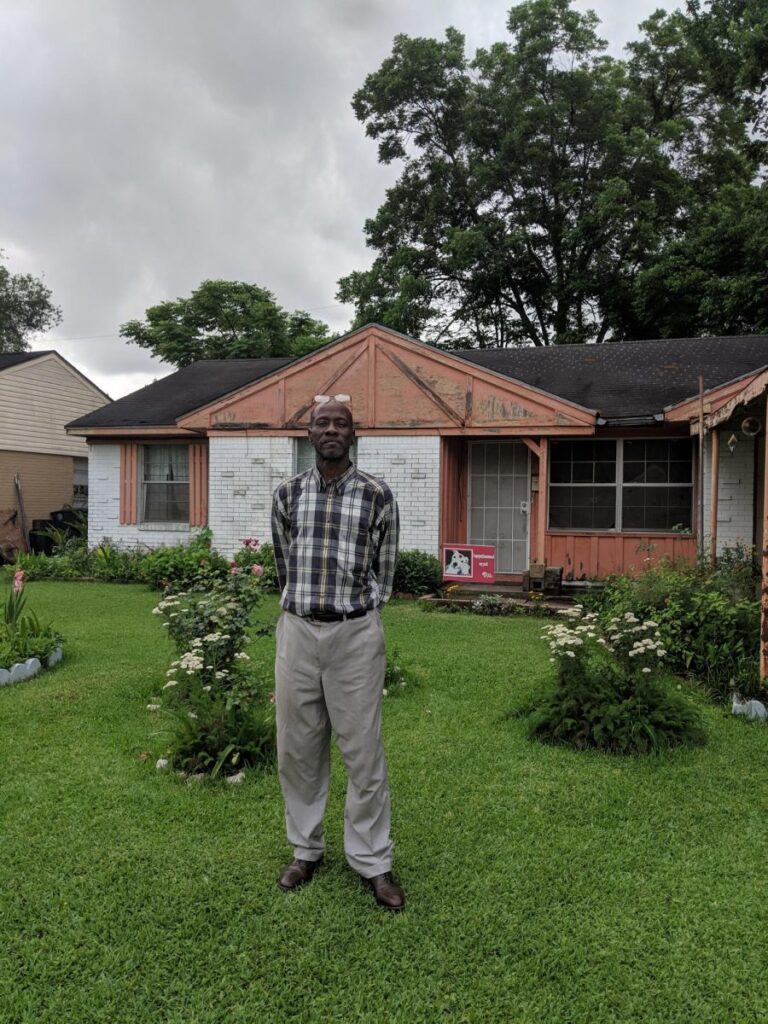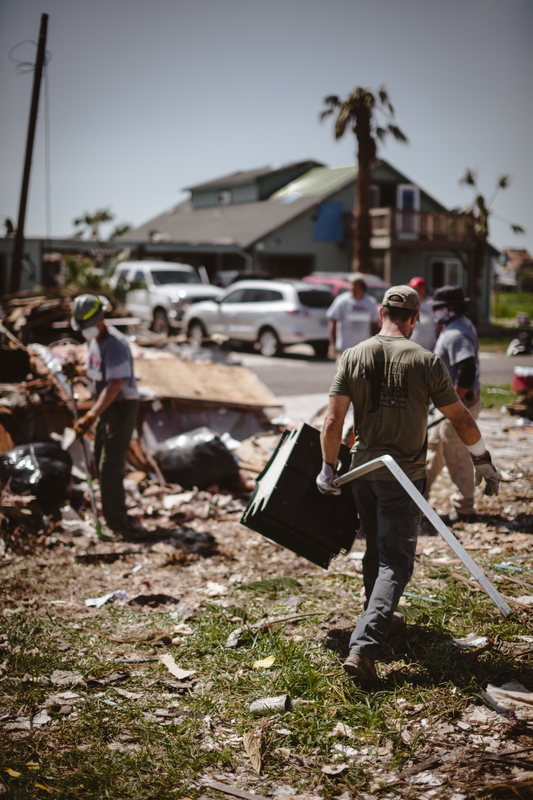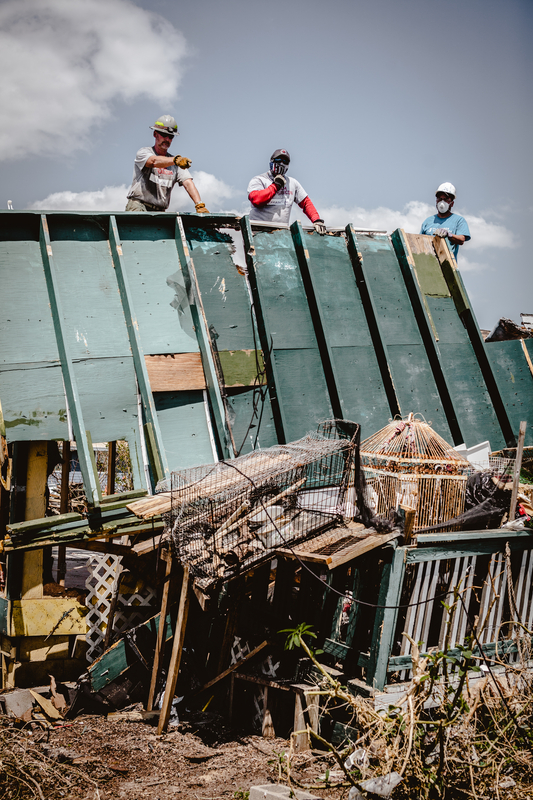When surviving a hurricane becomes a matter of necessity, quick decisions and courage make all the difference. In August 2017, as Hurricane Harvey—a Category 4 storm—battered Texas, Willie Williams had one goal: protect his southeast Houston home and his six dogs. With nowhere else to go, he stocked up on bottled water, blankets, and essentials and decided to ride out the storm.
“I didn’t have anywhere else to go,” Williams says, “so I decided to ride it out.”
Once things calmed down, he assessed the damage to his one-story brick home, which belonged to his grandmother who raised him. The home was completely flooded and damaged throughout, including seepage into the floors and walls. Despite the extensive damage, he continued to live there for several months, first seeking help from FEMA and then later from Team Rubicon.

A Long Road to Recovery After Surviving the Storm
“Two days after Christmas, the government sent me a check for $500 and in January sent out [surveyors] to assess the damage,” he says. “All they could do was replace three of the interior walls with new drywall. During the reconstruction, they wound up breaking my hot water line. Then Team Rubicon got involved.”
Another nonprofit put Williams up in a nearby hotel, a stay that eventually stretched eight or nine months while Team Rubicon rebuilt his home from the ground up.
“They did a gut job of the entire house,” he says. Someone even built a fence on his property. “That way, my dogs could stay there during the construction. I would come and visit every single day.”
During the reconstruction, Team Rubicon would only let me Williams see the outside of his house, not the work they were doing on the interior. That would be a surprise for the Houston man. Meanwhile, as the Greyshirts worked, Williams’ story of surviving a hurricane caught the attention of the Houston Rockets, who donated furniture to help him rebuild his life.
“When I opened the back door for the first time and came inside, I was in shock,” says Williams. He wasn’t alone. “My sister and niece cried when they saw the house,” he says. “That’s when it hit me—I was lucky to survive.”
Experts and disaster responders agree that the best way to outrun a hurricane is to avoid it by evacuating. While Williams—who couldn’t imagine evacuating without his pets—was fortunate that he walked away from the hurricane unscathed, here are several tips to keep in mind should you ever experience a hurricane.
Five Tips for Surviving a Hurricane
While Williams was fortunate, experts strongly advise evacuation when possible. Here are five critical tips to help anyone survive a hurricane safely:
Recognize Your Risks
Hurricanes impact different regions in different ways. Areas near the storm’s eye face downed trees and roof damage, while low-lying and water-adjacent zones experience severe flooding.
“Homes that are closer to landfall, the eye of the storm, and the strongest force winds tend to experience destroyed roofs and downed trees,” said Jacob Meeks, Operations Planning Manager for Team Rubicon. “Closer to bodies of water and where there’s more prolonged rain—think around Lake Pontchartrain or in the Northeast after there had already been lots of rain prior—then we’re looking at flooding and water damage.”

Lately, tropical cyclones have been rapidly intensifying ahead of landfall, leading to even more wind damage.
“Stronger winds lead to more wind-based damage, specifically resulting in downed trees and damaged roofs,” says Luren Vatier, Associate of Operational Planning for Team Rubicon. “For Team Rubicon specific stats, during the 2020 hurricane season, the removal of downed or damaged trees made up the majority of work performed on homes damaged from a tropical cyclone, with only a small percentage focused on water damage. This is a similar trend we are seeing during the 2021 hurricane season, although removal of downed or damaged trees is less of the majority, while there has been a slight increase in the percentage of flood damage we are responding to.”
Mind the Weather Map
Pay attention to official weather reports and evacuate if necessary. If you do decide to stay in place (which isn’t recommended), gather the necessary supplies, such as bottled water, non-perishable food, flashlights, blankets, and a first-aid kit.
Board Up Early
Secure your home’s windows and doors with thick plywood. (Tape does not prevent glass from breaking.) Bring patio sets and other outdoor furniture indoors. Fill your bathtub with water. Turn your refrigerator to its coldest setting and keep the door closed.
Evacuate. Or, Seek Cover and Stay Put
If you can’t evacuate before a hurricane, do everything possible to stay safe as you ride it out. During the storm, stay inside an interior room, such as a closet or a hallway, that doesn’t have any windows. Lie down under a table or other sturdy object that can provide bodily protection.
Avoid the Disaster After the Disaster
After the storm passes many dangers still exist. Don’t enter any standing water, and stay far clear of any downed power lines. Also, avoid walking under any broken trees or hanging limbs. One of the biggest killers after a hurricane or tornado is actually falling limbs.

Surviving a hurricane isn’t just about the storm—it’s about what happens after. Willie Williams’ story is a powerful reminder of the strength it takes to rebuild, and of the community that shows up when disaster strikes.
test



